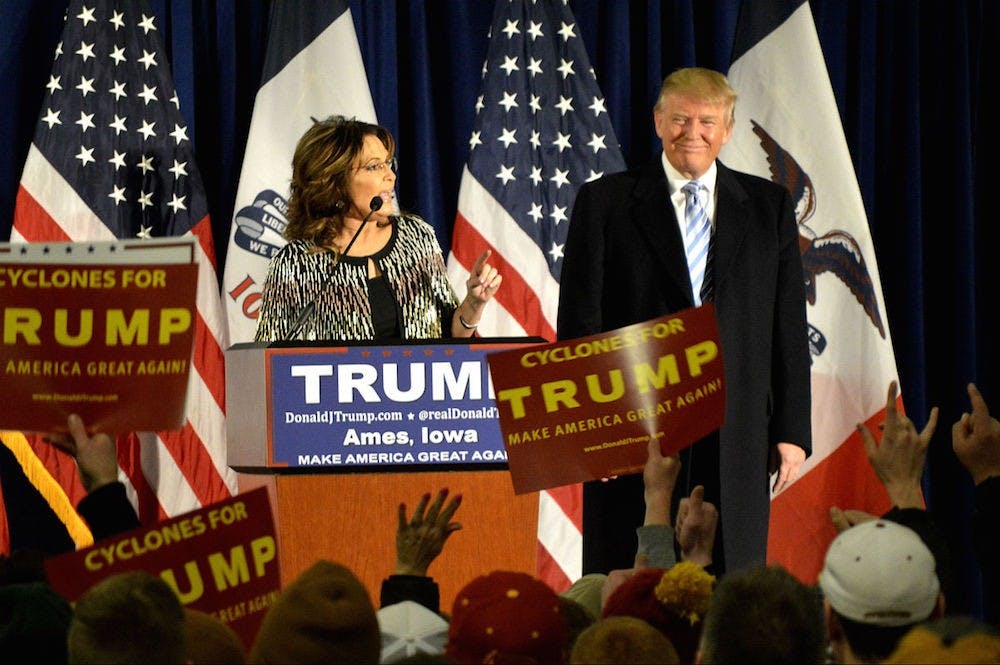What's up, Doc? is a Q&A series where The Collegian asks a University of Richmond professor five questions on a prominent current events topic that aligns with their expertise.
After months of campaigning, an election is finally here. Iowa voters will convene for the Iowa Caucus today, marking the beginning of this spring's primary season that will ultimately winnow the field down to two presidential candidates (unless of course an independent candidate, such as Michael Bloomberg, decides at the last minute to run). Dan Palazzolo, the head of University of Richmond's political science department, spoke with me to answer some questions in lead up of Iowa.
Jack Nicholson: Who do you think Iowa is most important for: Bernie Sanders or Hilary Clinton?
Dan Palazzolo: I think Sanders probably has to win, mainly because he needs to turn this movement into votes. In 2008 there was a lot of speculation that Barack Obama was climbing in the polls and competing with Hilary Clinton, but until he actually won it really wasn’t clear that he could contend for the nomination. So Iowa is an important proving ground for Sanders. I think Clinton could lose Iowa and still move forward.
JN: Same question but for the other party: Who is Iowa most important for: Ted Cruz or Donald Trump?
DP: I don’t want to answer your question because I don’t think it’s a two-person race. In a way it is, but unlike in the Democratic field where it’s really just two candidates. In the Republican field there’s a lot of rumination and speculation of a third or possibly even a fourth candidate. And history would tell us that there probably should be. I think the real story out of Iowa is who comes in third.
As for Cruz and Trump, I think Iowa mattes more for Cruz than Trump. And I say that mainly because I think Trump is doing so well in polls in New Hampshire that if he were to lose he could probably come back. Whereas if Cruz loses I think it would be really difficult for him to move forward, because the Iowa Republican Caucus-goers tend to be very socially conservative.
Having said that, if Trump loses then he also is in somewhat of a bind, because his entire campaign is premised on winning. And if for some reason he winds up losing, then he has to answer the question, “Why? I thought you were the winner.” So ironically I think they both have a very high stake in this first election. I don’t think it’s going to determine the outcome of this entire election, but it’s a pretty important race.
JN: After last Thursday's Republican debate, who do you think helped themselves the most?
DP: I thought Jeb Bush helped himself a lot. And I say that not because he may turn around and win Iowa but because he had the opportunity to develop some policy ideas, and he didn’t run away from who he is. He articulated unapologetically that he is what people are calling the establishment. So there was a level of authenticity and directness that people might appreciate. If it’s a year when the insider establishment candidate doesn’t have a chance, Bush doesn’t have a chance. But you can’t run away from whom you are.
I think some people might think Christie did well, because he filled the void of strong presence in the room that Donald Trump left.
I don’t think Cruz had a great night. At one point he got very defensive about the questions that were being asked. He was trying to frame it as a joke, but the point that came across was that he felt like he was being attacked.
Enjoy what you're reading?
Signup for our newsletter
JN: How could Trump’s decision to skip the debate impact his place in Iowa?
DP: The other interesting question now is whether or not Trump’s maneuver not going to the debate will have an affect. So far, virtually everything he has done has seemed to work out in his favor. He’s a risk taker, and he made a move. My guess is it will reinforce the strength that he has amongst very stronger supporters, but I’m not sure what it’s going to do to others.
JN: How could the campaign look differently after Iowa?
DP: Some candidates will drop out after Iowa, mainly the lower-tier candidates. But I think we really don’t know. Until we see the results, we don’t know how the caucus will affect the field. My guess is it will probably reveal something about Cruz; Cruz will either be validated or weakened, so I think it will affect Cruz.
And then I think it will affect one of the others in the next tier. Something will happen in the course of voting that will reset the race. I’m not so sure exactly what that will be.
Contact editor-in-chief Jack Nicholson at jack.nicholson@richmond.edu
Support independent student media
You can make a tax-deductible donation by clicking the button below, which takes you to our secure PayPal account. The page is set up to receive contributions in whatever amount you designate. We look forward to using the money we raise to further our mission of providing honest and accurate information to students, faculty, staff, alumni and others in the general public.
Donate Now



